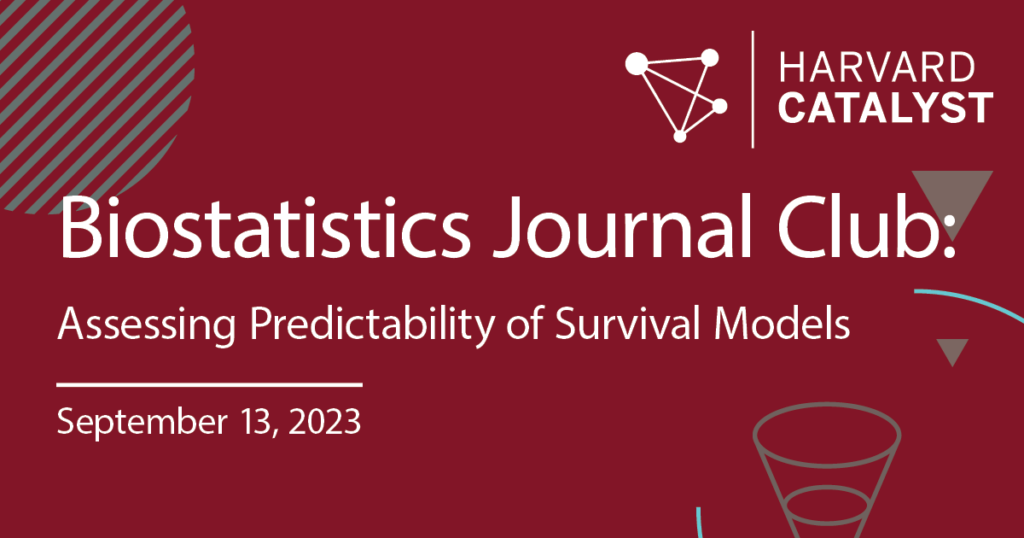
Biostatistics Journal Club: Assessing Predictability of Survival ModelsWednesday, September 13, 20231:00pm-2:00pmRegister hereLee-Jen (LJ) Wei, PhD, Harvard T.H. Chan School of Public Health
For personalized or stratified medicine, it is critical to establish a reliable and efficient prediction model for a clinical outcome of interest. The goal is to develop a parsimonious model with fewer predictors for broad future application without compromising predictability. A general approach is to construct various empirical models via individual patients’ specific baseline characteristics/biomarkers and then evaluate their relative merits. When the outcome of interest is the timing of a cardiovascular event, a commonly used metric to assess the adequacy of the fitted models is based on C statistics. These measures quantify a model’s ability to separate those who develop events earlier from those who develop them later or not at all (discrimination), but they do not measure how closely model estimates match observed outcomes (prediction accuracy). Metrics that provide clinically interpretable measures to quantify prediction accuracy are needed.
The paper to be discussed provides a clinically interpretable measure to assess the model’s predictability, which is illustrated with the data from a recent clinical trial.



